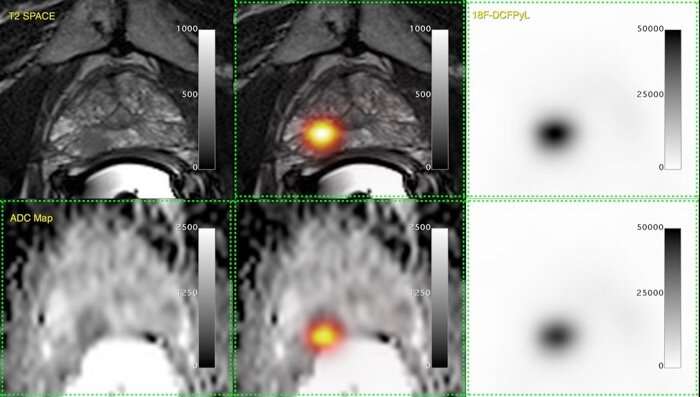University Of Western Ontario Starts Clinical Trials Of New Imaging Tracer For Prostate Cancer
Source: Thailand Medical News Nov 27, 2019 5 years, 5 months, 1 day, 1 hour, 24 minutes ago
University of Western Ontario are conducting a new clinical study that looks to move doctors and patients closer to earlier and more precise detection of recurrent prostate cancer that would clarify treatment decisions and lead to more confident courses of action and better health outcomes.
The multi-center trial registry testing the use of a new
imaging tracer ie the prostate specific membrane antigen (PSMA), is targeting men who have been diagnosed with
prostate cancer, have had treatment, and are now concerned the cancer may have returned.
 Western Oncology professor Glenn Bauman leads a multi-centre trial registry testing the use of a new imaging tracer
Western Oncology professor Glenn Bauman leads a multi-centre trial registry testing the use of a new imaging tracer
for more precise detection and treatment of recurrent prostate cancer. Credit: Western News
Typically, PSA (prostate specific antigen) is highly sensitive test at telling us if the
cancer might be returning. But the challenge has been that the cancer is usually most treatable when levels are still quite low," explained Western Oncology Professor Glenn Bauman.
Conventional PSA blood tests often indicate a
cancer is returning even before the location of the tumor is detected by a bone scan or computed tomography (CT) scan.
Professor Glenn Bauman explained to
Thailand Medical News,"You do regular imaging and it's a frustrating situation. We know there's a problem; we don't know where it is, so you're not sure what treatment should be offered. In the past, we had to go on the balance of probability. We think it's still localized to this area, so more treatment to this area, or we're not sure, so we'll put you on hormone therapy which will treat it wherever it is, but it has its own side effects.Being able to better understand where the cancer is helps you choose between those options and offer a given treatment with a bit more confidence."
Normally,
prostate cancer cells express a protein on their surface called PSMA. By injecting a chemical into the bloodstream specially designed to bind to PMSA, the
prostate cancer cells are made visible to a positron emission tomography (PET) scan.
Professor Bauman said,"This will help us determine if the
cancer could be at site where we need to offer radiation, whereas if it's seen in multiple locations, the patient probably needs hormone therapy or drug treatment."
The clinical trial is providing valuable insights to research participants like 71-year-old Wayne Smith who was diagnosed with
prostate cancer in 2013 and made the decision to have his prostate removed. After some time, his PSA levels began to rise and doctors were concerned the
cancer was coming back.
Wayne Smith who went for the scan earlier this year at St. Joseph's Hospital. commented, "I was told a PET scan was available through research and that it could help locate the disease. Nothing showed up on the scan, but that was good news; it meant the <
;strong>cancer was microscopically small." Smith and his doctors decided on hormone therapy and radiation therapy to eradicate any cancerous cells.
Professor Bauman, a Lawson Health Research Institute scientist,commented, "Early evidence suggests a clear PET scan, despite rising PSA levels, is likely associated with persistent
cancer at the original site.Based on the scan, Wayne was able to do a much shorter round of hormone therapy,six months rather than being on hormone therapy indefinitely."
The ongoing clinical trial Led by Porfessor Bauman, along with Drs. Ur Metser and Tony Finelli at University Health Network, is testing the use of the new tracer at five sites in Ontario, including London, Hamilton, Toronto and Thunder Bay, with testing to begin soon in Ottawa.
Classified as an 'investigational agent' in Canada, the
PSMA tracer is currently only available through clinical trials. After studying the accuracy of the tracer, Bauman hopes to have enough data to recommend when it could be used in the clinic.
Professor Bauman noting that Australia and Germany already use a variation of this test, said, "Every new test has its limitations. We have to have a formal registry study and allow us to track the results."
The researchers are looking to recruit up to 1,500 men for the study.Ontario men with recurrent
prostate cancer interested in participating in the
PSMA-PET Registry Trial may contact one of the
participating sites.
